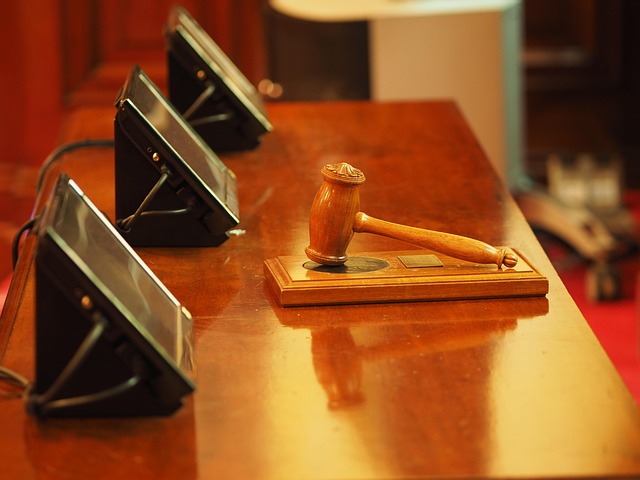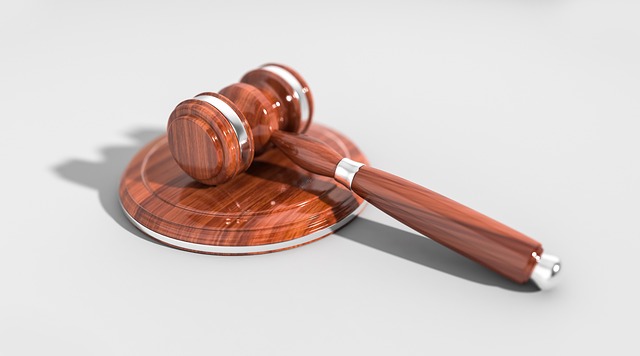In criminal law, Class Action Lawsuits vs Individual Lawsuits offer contrasting approaches. Class actions aggregate claims from multiple victims against a common defendant, effective for large-scale harm like white-collar crime, where consolidation enhances legal standing and deters future offenses. Individual lawsuits, focusing on specific circumstances, empower personal responsibility and tailored strategies, crucial for complex cases with smaller individual claims. The choice between these depends on the nature of crime and desired outcome, impacting efficiency, impact, and accountability in pursuit of justice.
In the realm of criminal law, understanding the distinction between class action lawsuits and individual cases is pivotal. While class actions unite many voices against common adversaries, individual lawsuits highlight the power of a single person’s stand. This article delves into these key differences, exploring scale and impact in criminal law cases. We’ll guide you through essential factors in choosing a legal path and present real-world examples, shedding light on successful class action vs. individual pursuits.
- Understanding Class Action Lawsuits: When Many Become One Voice
- Individual Lawsuits: The Case of the Single Person's Stand
- Key Differences: Scale and Impact in Criminal Law Cases
- Choosing a Legal Path: Factors to Consider for Justice
- Real-World Examples: Exploring Successful Class vs. Individual Actions
Understanding Class Action Lawsuits: When Many Become One Voice

In the realm of criminal law, class action lawsuits stand as a powerful tool when many individuals unite to bring justice against a common adversary. Unlike individual lawsuits that focus on personal grievances, class actions aggregate claims from numerous victims, creating a collective voice. This strategy is particularly effective in cases of white-collar and economic crimes, where dozens or even hundreds of people may have suffered similar losses at the hands of a single entity or individual. By consolidating these cases into one lawsuit, plaintiffs can enhance their chances of achieving significant outcomes, including winning challenging defense verdicts.
Class action lawsuits not only amplify individual stories but also serve as a deterrent to future misconduct by holding perpetrators accountable for their actions. The collective nature of these suits allows victims to access legal resources and potentially recover losses that might be unattainable through solo litigation. This approach is especially valuable in white-collar defense, where complex financial schemes often affect vast numbers of people, each with relatively smaller individual claims. By pooling resources and knowledge, plaintiffs can navigate the intricate legal labyrinth and secure justice for their shared experiences.
Individual Lawsuits: The Case of the Single Person's Stand

In many criminal law cases, an individual faces charges for their alleged actions—a scenario that differs vastly from class-action lawsuits. When a single person is involved, their case centers around their unique circumstances and defenses. This personal approach allows for a more nuanced understanding of the facts and legal arguments, potentially leading to outcomes that address specific situations. For instance, those accused of white-collar or economic crimes might employ strategies to avoid indictment by presenting compelling evidence of lack of intent or demonstrating their actions were not criminal under the law.
Unlike class-action lawsuits that aggregate multiple claims for collective relief, individual lawsuits focus on the rights and wrongs unique to one person. This can be beneficial when facing challenging defense verdicts, as it allows for more tailored legal strategies. As such, individuals have a powerful tool in their pursuit of justice—one that emphasizes personal responsibility, accountability, and the opportunity to prove their innocence or mitigate circumstances, thereby shaping the course of their case independently.
Key Differences: Scale and Impact in Criminal Law Cases

In the realm of criminal law, a pivotal distinction lies between class action lawsuits and individual lawsuits, each with its own scale and impact on legal proceedings. While a class action involves multiple plaintiffs united against a common defendant, individual lawsuits are personal claims brought forth by a single party. This fundamental difference sets the tone for the entire case, influencing everything from the legal strategy to the potential outcomes.
Class actions often aim to address systemic issues or large-scale wrongs, with the goal of achieving justice for a defined group. They can be powerful tools for holding entities accountable and securing compensation for numerous victims. In contrast, individual lawsuits focus on specific instances of wrongdoing, with each case carrying unique circumstances and defenses. The scale may be smaller, but these suits offer tailored remedies for individual clients, sometimes leading to winning challenging defense verdicts and ensuring justice is served for personal suffering or losses, thereby avoiding indictment altogether.
Choosing a Legal Path: Factors to Consider for Justice

When contemplating legal avenues for justice, individuals and groups facing criminal law cases must decide between a class action lawsuit or an individual lawsuit. This choice significantly impacts the path to achieving extraordinary results in their quest for justice. Several factors influence this decision, each holding strategic value.
Firstly, the nature of the crime and its impact on the affected party(ies) is paramount. Class action lawsuits are ideal when numerous individuals have suffered similar harm; it consolidates these claims, streamlining legal proceedings and enhancing efficiency. Conversely, individual lawsuits offer a more tailored approach, focusing on specific victims’ unique experiences, which may be crucial in cases involving personal injury or complex criminal acts. Moreover, the desired outcome—be it compensation, reform, or accountability—plays a role. General criminal defense strategies might differ between these two paths, with class actions often emphasizing systemic change while individual lawsuits center around redress for particular victims.
Real-World Examples: Exploring Successful Class vs. Individual Actions

In the realm of criminal law, understanding the distinction between class action lawsuits and individual actions is key to navigating justice. Class actions have proven to be a powerful tool for achieving extraordinary results in cases involving widespread harm. For instance, across the country, numerous consumers have benefited from successful class action lawsuits against corporations for data breaches, ensuring substantial compensation for violations of privacy. This collective approach allows for greater economic impact and often results in winning challenging defense verdicts.
On the other hand, individual actions cater to specific victims seeking redress for personal grievances. These cases can be highly effective when a criminal act affects only a few individuals directly. For example, a victim who suffered severe injury due to a defective product might bring an individual lawsuit to recoup medical expenses and pain and suffering. While these cases may not have the same broad impact as class actions, they are crucial in holding culpable parties accountable and ensuring personal justice is served.
In navigating criminal law cases, understanding the distinction between class action lawsuits and individual lawsuits is pivotal. While class actions amplify the voices of many, individual lawsuits showcase the power of a single person’s stand. Both approaches have unique scales and impacts, with each presenting its own path to justice. When deciding on a legal strategy, considering factors like scope, consequences, and fairness ensures that the pursuit of justice is both effective and equitable. By examining real-world examples, we gain insights into the successful outcomes that can be achieved through both class action and individual litigation, ultimately shaping a more just criminal legal landscape.






